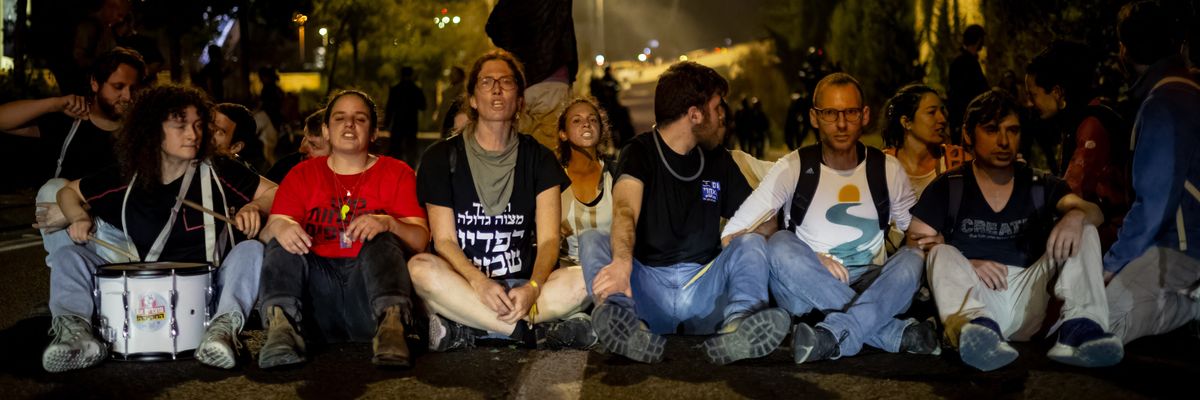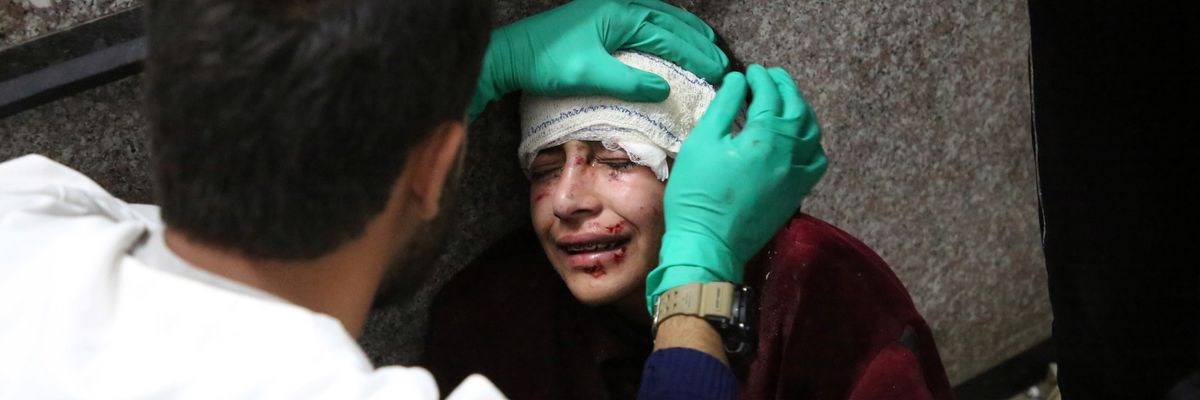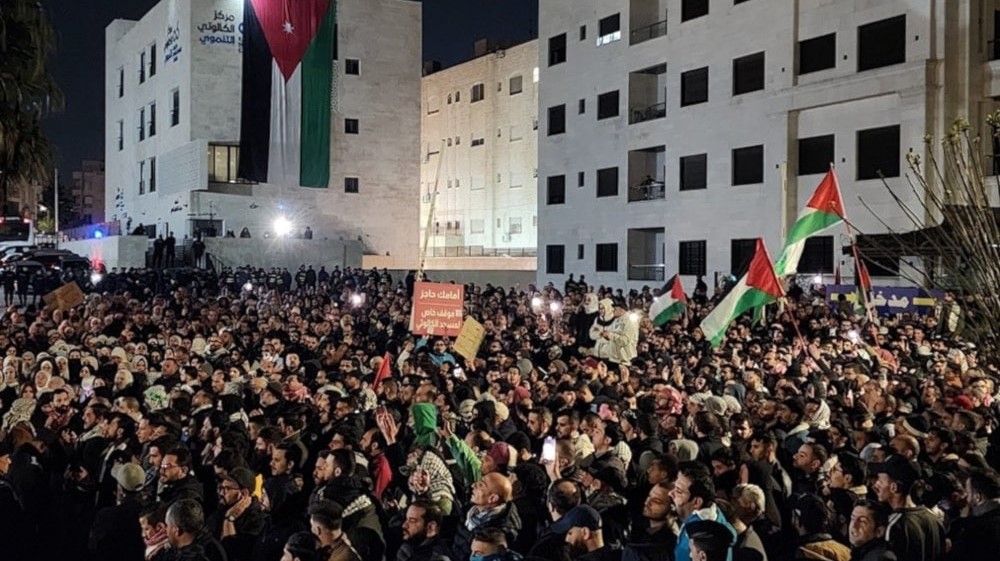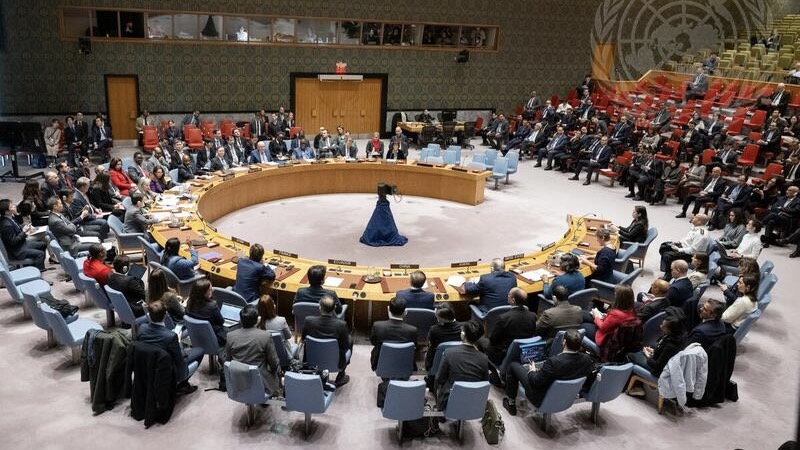Demanding ‘Immediate Removal’ of Netanyahu, Tens of Thousands Protest in Israel
Original article by OLIVIA ROSANE republished from Common Dreams under Creative Commons (CC BY-NC-ND 3.0).

(Photo: Yahel Gazit/Middle East Images/AFP via Getty Images)
“Our country is being led by a gang of nut cases that jeopardize not only our existence but our well-being,” one demonstrator said.
Tens of thousands of Israelis demonstrated against the government of Prime Minister Benjamin Netanyahu Saturday and Sunday, in what were described as the largest protests in the country since Hamas’ October 7 attack on southern Israel and Israel’s war on Gaza that followed.
Participants carried signs reading, “Hostage deal now,” and arguing for Netanyahu’s “immediate removal,” according toThe New York Times. They demanded early elections and a cease-fire deal that would see the remaining hostages freed from Gaza, calls that came as indirect negotiations between Hamas and Israel resumed in Egypt on Sunday.
“Our country is being led by a gang of nut cases that jeopardize not only our existence but our well-being,” 70-year-old protester Shaul Dwek told The Washington Post. “This is not the way we grew up and these are not the values that we hold.”
“After six months, it seems like the government understands that Bibi Netanyahu is an obstacle.”
Netanyahu faced months of internal protests before the October 7 attacks over his government’s planned overhaul of the judiciary to weaken the oversight powers of the Supreme Court. However, protests have been muted since Hamas killed 1,139 people on October 7 and took around 250 hostages into Gaza. Since then, Israel and the Netanyahu government have faced global protests and credible accusations of genocide over the war they launched in retaliation, which has killed nearly 33,000 people and subjected the survivors to famine and mass displacement.
In Israel, the war itself is still popular, according to The Associated Press. However, protesters are concerned about Netanyahu’s personal corruption and the degree to which he is prioritizing the release of hostages. While around half were released during a temporary cease-fire and prisoner exchange in 2023, the Israeli government estimates that around 130 are still being held in Gaza, including 34 who have died, The Guardian reported.
“The people of Israel were deep in sorrow and pain after 7 October, that is why it took so long, but when they understood there is no other option, this government is not functioning and is hurting us economically, diplomatically, in our security and in our values […] that is why people are out,” Naama Lazimi, a Labor party member of the Knesset who attended Sunday’s protest, said, as The Guardian reported.
The weekend’s protests were organized by a coalition of hostage family members and civil society and opposition groups, according to The Washington Post.
“The families of the hostages have reached a breaking point with Netanyahu,” Josh Drill, who heads a group called Change Generation that demands a new government and the freeing of the hostages, told the Post.
Family members also spoke out directly.
“We believe that no hostages will come back with this government because they’re busy putting sticks in the wheels of negotiations for the hostages,” Boaz Atzili, whose cousin and cousin’s wife were both taken hostage, told AP. “Netanyahu is only working in his private interests.”
Atzili’s cousin’s wife was freed, but his cousin died in Gaza.
Einav Moses, meanwhile, still has a father-in-law being held in Gaza.
“After six months, it seems like the government understands that Bibi Netanyahu is an obstacle,” Moses told the AP. “Like he doesn’t really want to bring them back, that they have failed in this mission.”
On Saturday, protests were concentrated in Tel Aviv, but also took place in other cities including Jerusalem and Haifa. On Sunday, the main demonstration was held outside the Knesset in Jerusalem, which organizers said was the largest in Israel since October 7.
“Reservists rushing between the Kaplan Street demonstrations and the ruins of Gaza or its skies, peppered with bombers or predator drones, are also respondents to a poll, whose answer is unambiguous.”
Protesters blocked the main highway in Tel Aviv on Saturday and lit bonfires in the streets, The Washington Post reported. Police sprayed them with water cannons and arrested 16, including family members of hostages. On Sunday, demonstrators also blocked roads in Tel Aviv and Jerusalem.
Some protesters set up tents and prepared to stay until Wednesday, according to The New York Times.
“I will camp here in front of the Knesset until the PM resigns,” demonstrator Yaacov Godo, who lost a son on October 7, told The Guardian.
Israel is not scheduled to hold elections again until spring 2026, but Netanyahu’s coalition currently trails the opposition in the polls.
However, Israeli journalist Amira Hass, who covers the Occupied Territories for Haaretz, argued in a column for that paper that the majority of Israelis continue to support Netanyahu by backing the devastation wrought on Gaza.
“Reservists rushing between the Kaplan Street demonstrations and the ruins of Gaza or its skies, peppered with bombers or predator drones, are also respondents to a poll, whose answer is unambiguous,” Hass said, referring to a major Tel Aviv thoroughfare.
Hass wrote that the Israeli government’s plan for Palestinians amounted to forcing them to choose between accepting second-class status, leaving their homes entirely, or war and death.
“This is the plan now carried out in Gaza and the West Bank, with most Israelis serving as active and enthusiastic accomplices, or passively acquiescing in its realization, regardless of their revulsion for this government and its members,” Hass concluded. “The vast majority still believe that war is the solution.”
Original article by OLIVIA ROSANE republished from Common Dreams under Creative Commons (CC BY-NC-ND 3.0).



